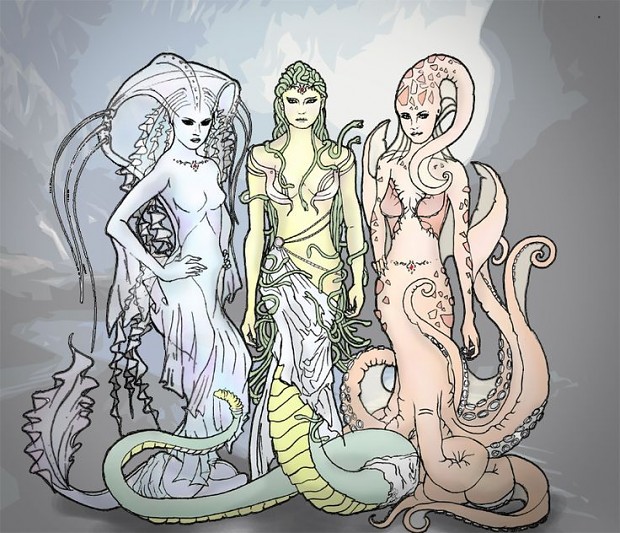Polytheism
Educational
Polytheism is the belief or worship in multiple deities usually assembled into a pantheon of gods and goddesses, along with their own religions and rituals. Polytheist.
In Greek mythology, a Gorgon is a female creature. The name derives from the ancient Greek word gorgós, which means "dreadful", and appears to come from the same root as the Sanskrit word "garğ" which is defined as a guttural sound, similar to the growling of a beast, thus possibly originating as an onomatopoeia. While descriptions of Gorgons vary across Greek literature and occur in the earliest examples of Greek literature, the term commonly refers to any of three sisters who had hair made of living, venomous snakes, as well as a horrifying visage that turned those who beheld her to stone. Traditionally, while two of the Gorgons were immortal, Stheno and Euryale, their sister Medusa was not, and she was slain by the demigod and hero Perseus.
Gorgons were a popular image in Greek mythology, appearing in the earliest of written records of Ancient Greek religious beliefs such as those of Homer, which may date to as early as 1194–1184 BC. Because of their legendary and powerful gaze that could turn one to stone, images of the Gorgons were put upon objects and buildings for protection. An image of a Gorgon holds the primary location at the pediment of the temple at Corfu, which is the oldest stone pediment in Greece, and is dated to c. 600 BC.







Always liked she snakes
* Ssssss !! *